The closings and demolitions have been bittersweet for locals. The loss also means a loss of jobs. And while pollution is beginning to clear up, these facilities remain an environmental burden even after they shut down for good. The soil beneath them is toxic and water supplies are still suspect.
According to a report in the Chinese publication, Global Times, many of the plants were built on land rented from farmers. But it will be nearly impossible to return the land to its former use. As one man who wants to expand his flock of sheep into previously industrial property next door tells Global Times, "I think it will take many, many years."
The seemingly inevitable shift away from factory life as China's dominant industry has only begun. Heavy industry has long been a defining part of the country's changing landscape, creating new
jobs for many while compromising their health and Heibei and other northern provinces will notice the shift more than others. Below, a look in and around China's many steel plants:
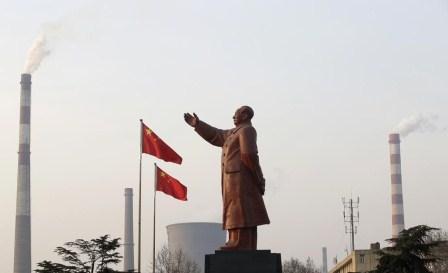
A st at ue of former Chinese leader Mao Zedong is seen in front of smoking chimneys at Wuhan Iron And St eel Corp in Wuhan, Hubei province, March 6, 2013. (REUTERS/St ring er)
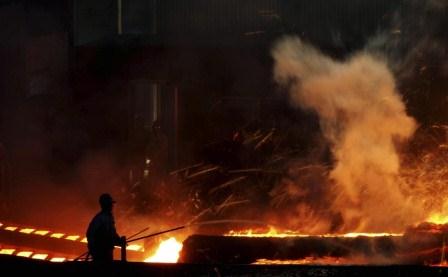
A laborer works inside a steel product ion fact ory in Dalian, Liaoning province, Oct ober 11, 2013. (REUTERS/China Daily)
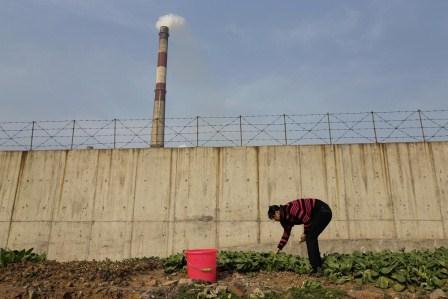
A resident picks vegetables at a vegetable patch next to a smoking chimney of Wuhan Iron And Steel Corp, in Wuhan, Hubei province, March 6, 2013. (REUTERS/St ring er)
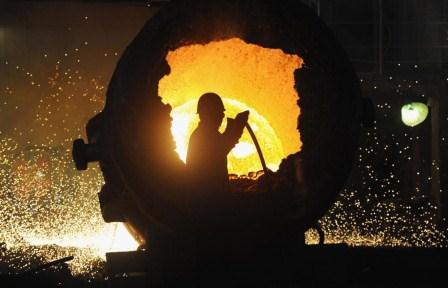
A worker operates a furnace at a steel plant in Hefei, Anhui province Aug ust 18, 2013. (REUTERS/St ring er)
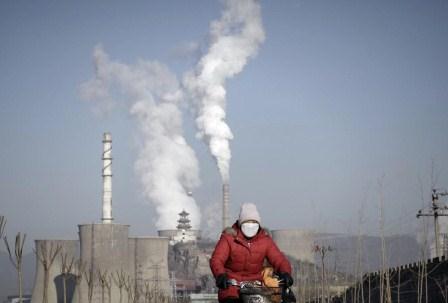
A woman wearing a mask rides past smoking chimneys and cooling towers of a steel plant in Beijing , January 17, 2013. (REUTERS/Suzie Wong )
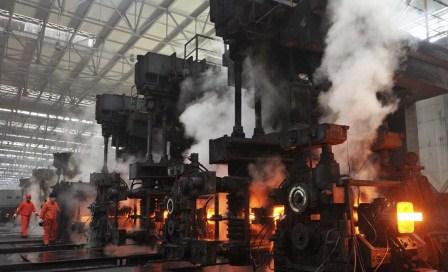
Employees work at a steel factory of Dong bei Special Steel Group in Dalian, Liaoning province January 18, 2013. (REUTERS/China Daily)
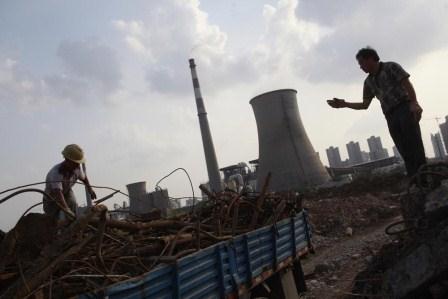
Migrant workers collect steel for recycling at a demolished quarter at an abandoned st eel plant in Wuxi, Jiang su provinceSept ember 26, 2012. (REUTERS/Aly Song )
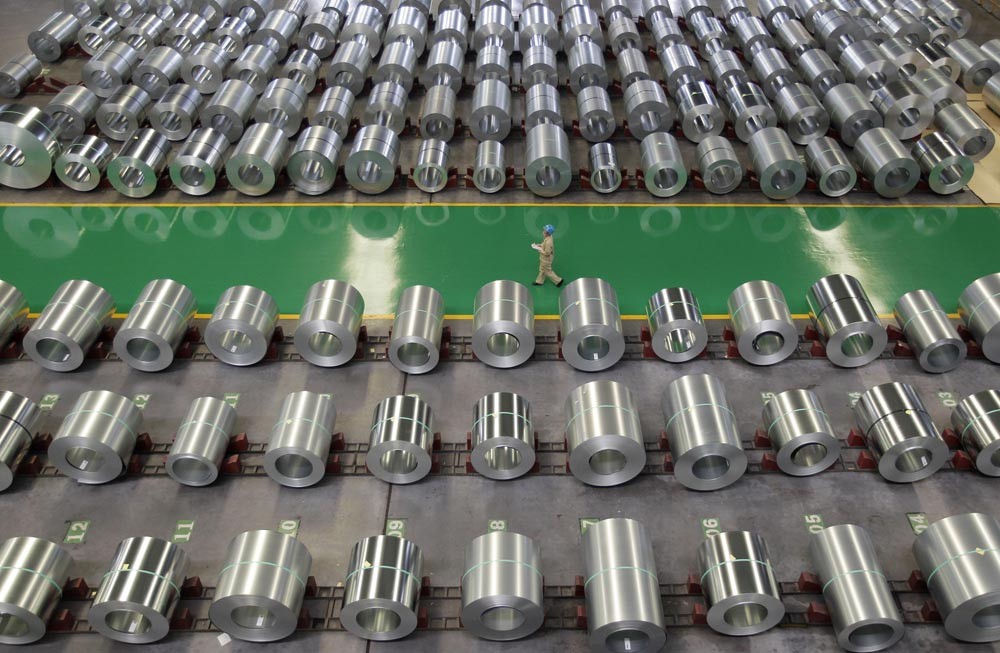
An employee walks past columns of steel as she works at a steel product ion fact ory in Wuhan, Hubei province, August 2, 2012. (REUTERS/St ring er)
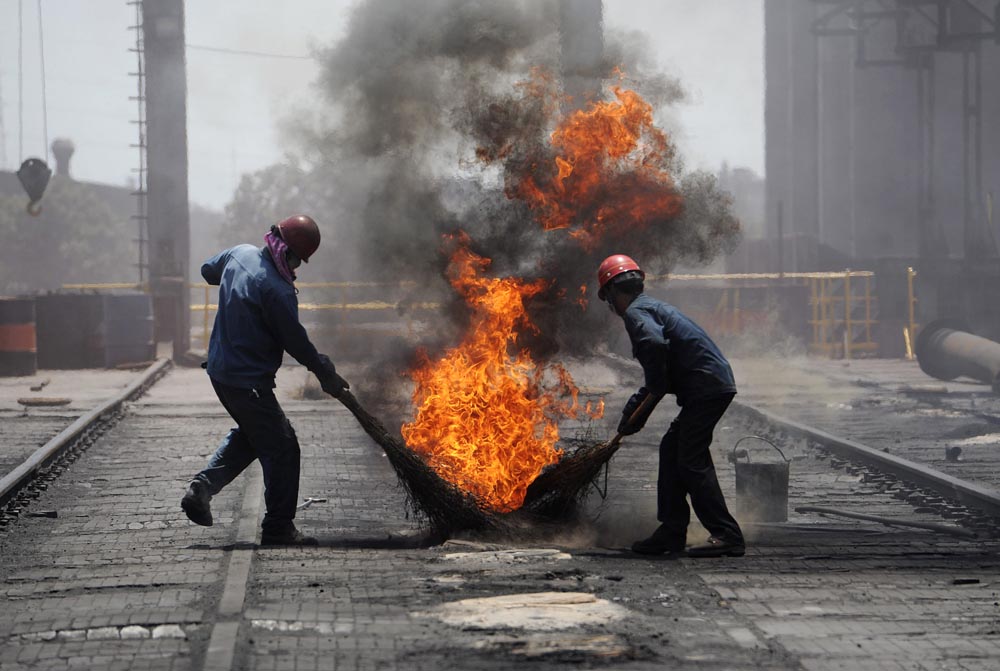
Laborers work at a coking plant of a st eel factory in Hefei, Anhui province Aug ust 25, 2012. (REUTERS/St ring er)
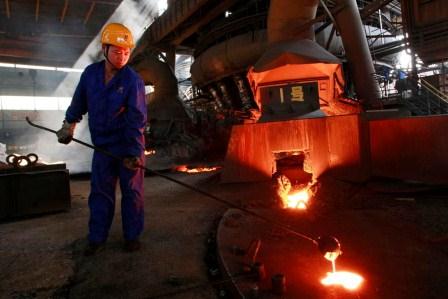
A laborer works next to a furnace at a sand casting foundry in Heng yang , Hunan province June 19, 2013. (REUTERS/St ring er)
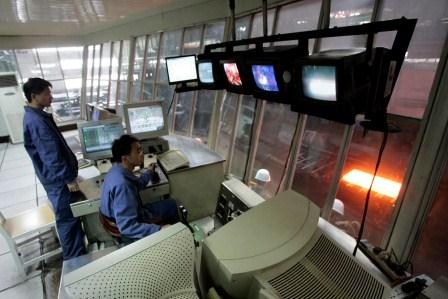
Workers work inside a control plant at t he Jiuquan Iron & Steel Group in Jiayug uan, nort hwest China's Gansu province April 28,2007. (REUTERS/Jason Lee)
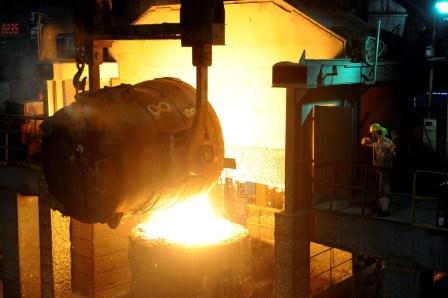
Workers look at a ladle pouring molt en iron int o a cont ainer at a steel plant in Hang zhou, Zhejiang province May 30, 2012. (REUTERS/Lang Lang )
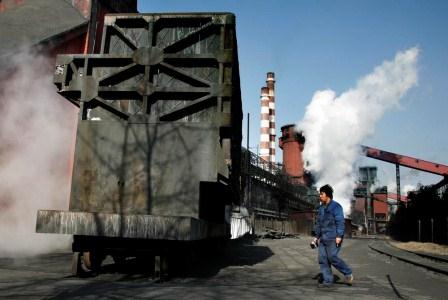
A worker walks past a st eam-driven boiler at the Shoug ang steel plant in Beijing January 22, 2009. (REUTERS/David Gray)
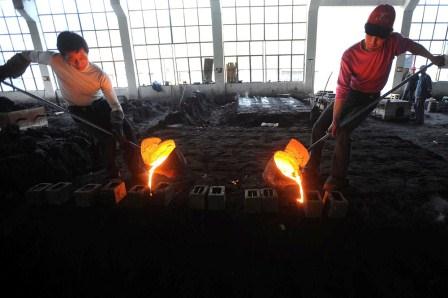
People work at a sand casting foundry in Wuhu, Anhui province, April 7, 2008. (REUTERS/Jianan Yu)
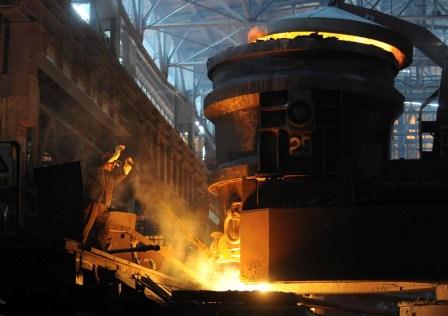
An employee works at the Ma'anshan Iron and Steel Company in Hefei, Anhui province March 6, 2009. (REUTERS/Jianan Yu)
联系人:Betty Cao
手机:+86 138 4009 6762
电话:+86 138 4009 6762
邮箱:info@leesh.cn
地址: 辽宁省沈阳市沈北新区蒲丰路97号